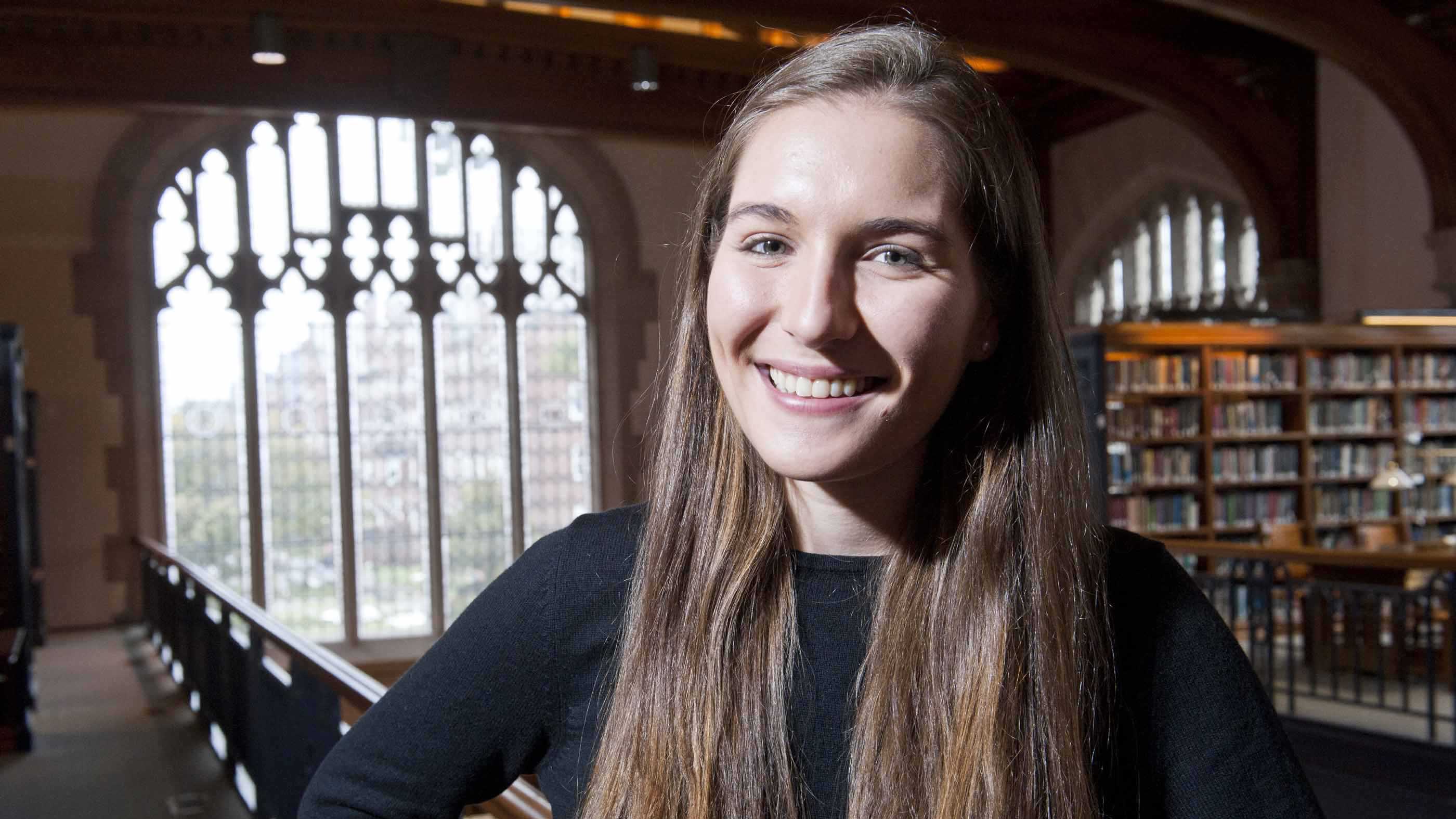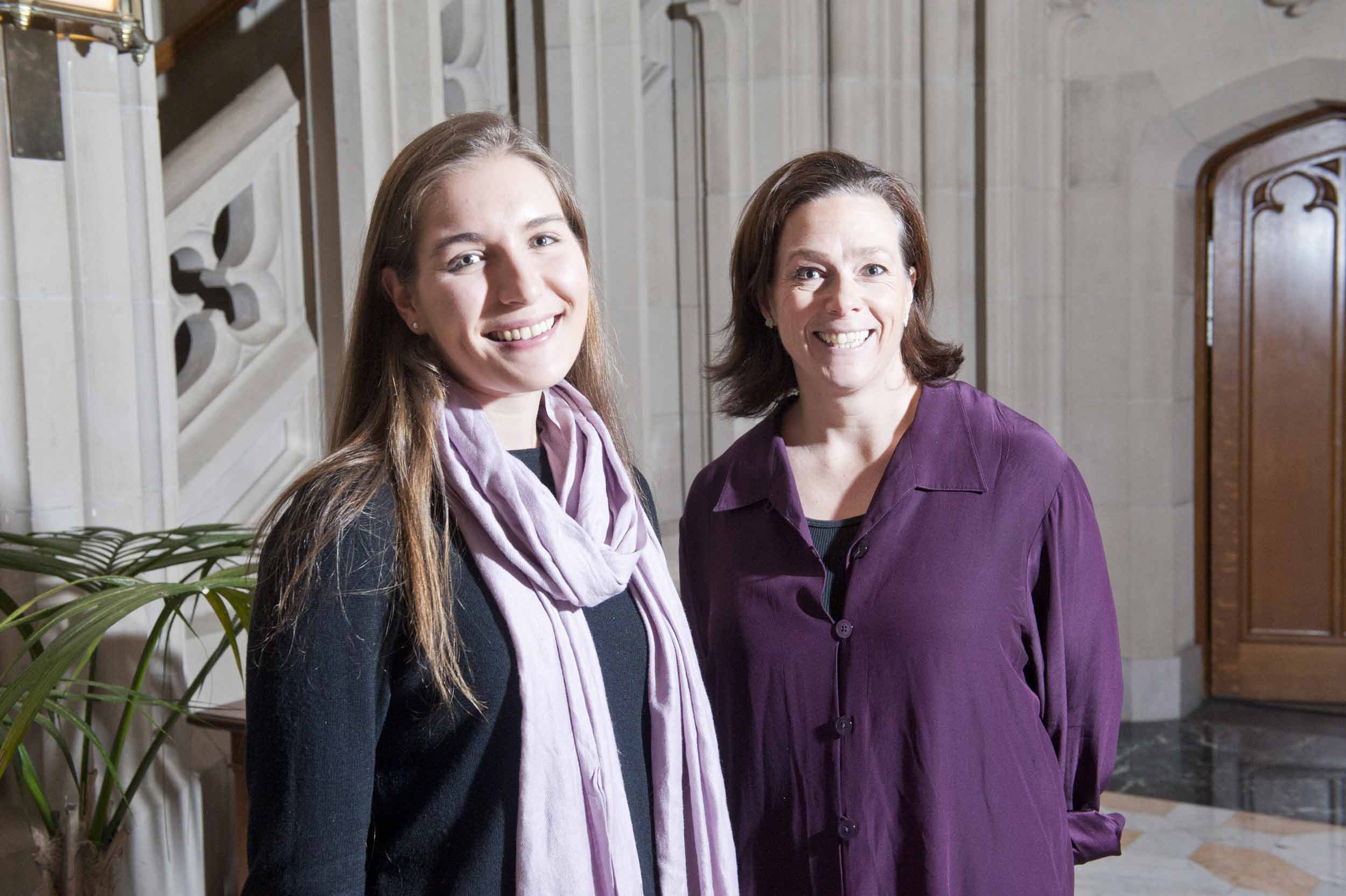One Year OutEmma Roellke ’16Post-Baccalaureate Researcher in Psychology
One Year OutEmma Roellke ’16Post-Baccalaureate Researcher in Psychology
When Emma Roellke ’16 enrolled at Vassar in the fall of 2012, the idea of pursuing a career in medicine was nowhere on the list. “I was planning a writing-intensive curriculum with an eye toward journalism,” Roellke recalls. Her post-Vassar plans took a number of detours over the next four years as she explored the course catalogue, immersing herself in a wide variety of subjects. But by the middle of her junior year, she knew she wanted to be a doctor.

Roellke is spending the current academic year as a post-baccalaureate researcher in Vassar’s Department of Psychological Science, and she’ll enroll this fall in Bryn Mawr College’s Post-Baccalaureate Premedical Program to complete her preparation for medical school.
“By the time I decided I wanted to go to med school, I didn’t want to give up any work in other departments to spend my remaining three semesters cramming in all of the pre-med requirements,” says Roellke, who graduated with a double major in psychological science and political science. “Looking back, I actually wouldn’t have wanted my Vassar experience to have gone any other way.” She plans to begin medical school in the fall of 2018.
Roellke says her career trajectory began to shift toward the sciences in her sophomore year when she took a class in public health policy from Sociology Prof. Marque Miringoff and a developmental psychology course from Prof. Abigail Baird ’91. Roellke says she was captivated by the subject matter of both classes. Baird says she was captivated by Roellke’s intelligence and work ethic. “I spotted Emma as a star, and I asked her to be my lab assistant,” Baird says. “By her junior year, she was doing the work of a graduate student. She was intellectually brave and she was kind, and those are the most important qualities you can have.”

After completing their first project together that semester--a co-authored paper on adolescent moral development--Roellke and Baird spent the summer working on a project through Vassar’s Undergraduate Research Summer Institute, gathering data on mass school shootings across the country. The research ultimately led to a scholarly paper on the subject, published in February. During her junior year, Roellke shadowed a radiology practice in Poughkeepsie, and during the summer of 2015 she worked full-time as a clinical research fellow in the Allergy and Immunology Department at Mount Sinai Hospital in New York City.
Following her graduation last May, Roellke began her post-baccalaureate work with Baird, finishing the paper on school shootings, developing Baird’s website, training research assistants and helping Baird finish a book on the neuropsychology of adolescence, tentatively titled, “The Teen Species.” “I couldn’t have finished the book on schedule without Emma moving me forward,” she says.
Since early March, Baird and Roellke have been working on a project Baird first began when she was on the faculty at Dartmouth College in 2003. The research, dubbed “Good Idea/Bad Idea,” indicates that adolescents use a different part of their brain than older adults do when they are deciding whether a given action is advisable or not. “Adults activate their limbic system, where they processs emotional information about previous experiences, while adolescents use their frontal lobes, which is responsible for more effortful thinking,” Roellke explains. “They aren’t so quick to dismiss a bad idea because it takes them a little while to contemplate.”
Baird says she’s consistently impressed with the level of sophistication Roellke brings to her research, and both attribute that in part to the way she approached her time at Vassar. “Vassar’s curriculum is about learning who you are; it’s not professional training,” Baird says. “Emma knew that, and she followed her passions, and by the time she chose medicine, it was an informed choice.”
Roellke agreed. “I’d give this advice to any incoming student: ‘Follow your passion,” she says. “’Take the courses you want to take because there are multiple paths to where you want to go.’”